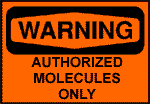
I believe we can all agree that the brain is the most crucial of all body organs. Some may argue this to be the heart as a person may be brain dead whiles the heart beats on. Technically, it is not the case as that phenomenon is short - lived and not possible without brain stem function.
Before I loose you on the brain-heart relationship, it is not my intention for this post.
As it's brain awareness week (
the global campaign to increase public awareness of the progress and benefits of brain research) , I'm here to tell you about the ongoing challenges we face where treatment of diseases of the central nervous system (CNS) is concerned.
If you can tap into your biology knowledge from school, remember that the CNS consists of the brain and the spinal cord and it basically runs the coordination errands from the brain to the other body parts. Now if you had so much responsibility as that of the brain where everyone relies on you for everything, you can't help but to set rules and create boundaries as you cannot please all the people all the time.

Blood brain barrier describes the mechanism by which the brain regulates the movement of substances in and out of its space. The structure is such that it allows nutrients through and stops contaminants from the blood crossing over to the brain. The downside to this is that it also hinders drugs from penetrating the barrier.
Alzheimer, Parkinson, HIV and Multiple Sclerosis (MS) are examples of conditions difficult to treat as it has been impossible to deliver drugs able to fight them to the brain. The decision as to who gets a permit and who does not depends on factors such as make and size. Basically, anything that dissolves in fat (lipid soluble) may cross over but has to be of a certain size (Molecular weight between 400 - 600 Dalton).
I know what you are thinking, So why not just make drugs that are lipid soluble and between 400 - 600 Dalton? Well, it's not that simple.
Most substances such as small molecules or proteins which are a major component of therapeutics do not fit the size and lipid soluble criteria. Over manipulation will lead to a loss of drug efficiency. In cases where other transport mechanism have been used to get some drugs across, the dose is not high enough to have any significant effect.
However all hope is not lost. Think of a scenario where you want access to a restricted area, you simply tag along someone who has clearance. In that same way, there's the potential of deceiving the blood brain barrier into allowing "prohibited" substances through by use of the middle man.
Still the brain is far from gullible and this process has it's own challenges. So in the mean time, the brain remains "hard - headed" and researchers press on.
As the saying goes - Where there's life, there's always hope